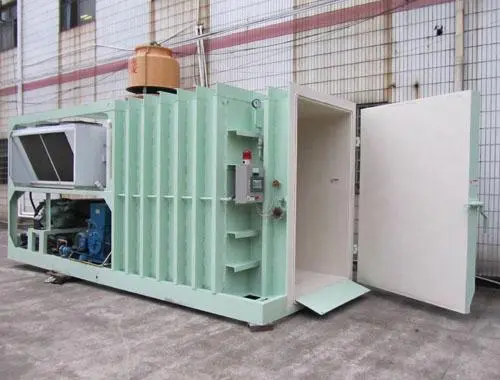cold room evaporator icing up supplier
The Impact of Icing Up in Cold Room Evaporators A Supplier's Perspective
In the world of refrigeration, particularly in cold rooms used for food storage, maintaining optimal temperatures is crucial for preserving the quality and safety of perishable goods. One common issue that arises in these systems is the icing up of evaporators. As a supplier of refrigeration equipment, understanding the causes and implications of evaporator icing is essential for providing effective solutions and maintaining customer satisfaction.
Understanding Evaporator Icing
Evaporators are designed to absorb heat from the environment by evaporating refrigerant at low pressures and temperatures. However, when conditions within the cold room are not balanced, icing can occur on the evaporator coils. This phenomenon happens when moisture in the air condenses on the cold surfaces of the evaporator and subsequently freezes. Several factors contribute to this issue, including high humidity levels, poor air circulation, and inadequate defrosting mechanisms.
Causes of Icing in Cold Room Evaporators
1. High Humidity Levels Cold storage facilities often operate in environments with varying humidity levels. When the humidity is excessively high, the moisture-laden air can easily condense on the evaporator fins, leading to icing problems.
2. Insufficient Airflow Proper air circulation is essential in cold rooms. If airflow is restricted due to blocked vents or improper fan operation, the cooling efficiency of the evaporator is reduced, resulting in the buildup of ice.
3. Inadequate Defrost Cycles Most modern evaporators come equipped with automatic defrost systems. If these systems are malfunctioning or not set correctly, ice will accumulate, impacting the performance of the unit.
4. Temperature Fluctuations Frequent changes in temperature within the cold room can also contribute to icing. When warm air enters the cold space, it mixes with the cold air, leading to increased condensation and, ultimately, icing.
Implications of Icing
The icing of evaporators can lead to several negative consequences for both the operational efficiency of the refrigeration system and the quality of stored products
.cold room evaporator icing up supplier

1. Reduced Cooling Efficiency Ice buildup acts as an insulating barrier, reducing the heat exchange efficiency of the evaporator. Consequently, the system must work harder to maintain the desired temperature, leading to increased energy consumption and higher operational costs.
2. Product Quality Compromise Icing can cause uneven cooling within the cold room. Products positioned near heavily iced evaporators may freeze, while items farther away may not be adequately cooled, leading to potential spoilage.
3. Increased Maintenance Costs Regular maintenance and frequent defrost cycles become necessary to combat icing issues, raising the overall operating costs and burdening maintenance staff.
Solutions and Recommendations
As a supplier, it's crucial to equip customers with appropriate solutions to mitigate the risk of evaporator icing. Key recommendations include
1. Install Dehumidifiers Encourage the use of dehumidification systems to control humidity levels within cold rooms effectively.
2. Enhance Airflow Advise customers on the importance of maintaining clear airflow paths and regularly checking fans and vents.
3. Regular Maintenance Checks Promote the significance of routine maintenance, including inspecting and servicing defrost systems.
4. Temperature Monitoring Implement temperature monitoring systems that can alert operators when fluctuations occur, allowing for timely intervention.
In conclusion, addressing the issue of icing in cold room evaporators is vital for the efficiency of refrigeration systems and the quality of stored products. As a supplier, providing knowledge and solutions regarding humidity control, airflow management, regular maintenance, and temperature stability can significantly enhance operational performance and customer satisfaction. By proactively addressing these concerns, suppliers can reinforce their value and reliability in the competitive refrigeration market.
















































































































